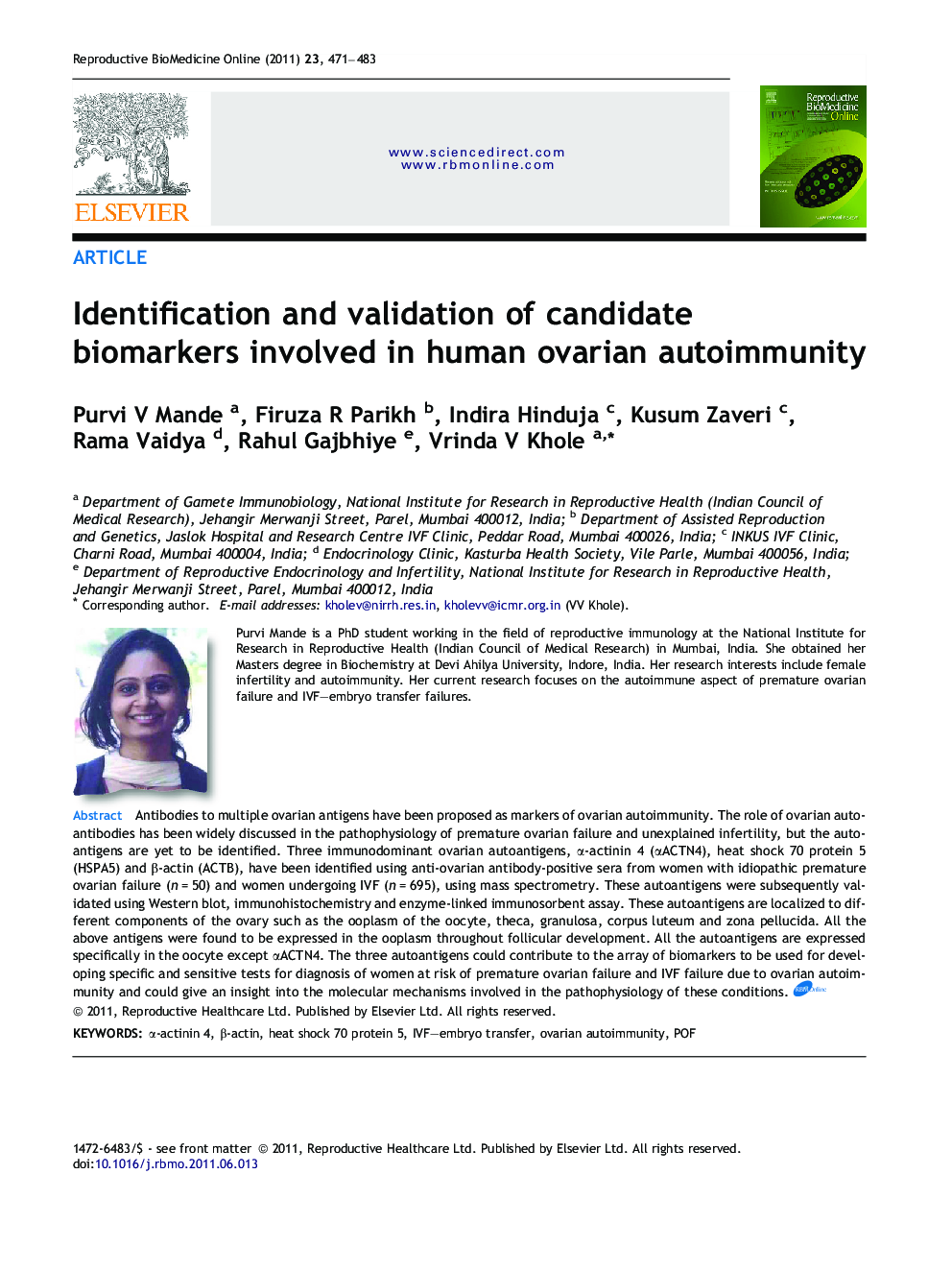| Article ID | Journal | Published Year | Pages | File Type |
|---|---|---|---|---|
| 3971129 | Reproductive BioMedicine Online | 2011 | 13 Pages |
Antibodies to multiple ovarian antigens have been proposed as markers of ovarian autoimmunity. The role of ovarian autoantibodies has been widely discussed in the pathophysiology of premature ovarian failure and unexplained infertility, but the autoantigens are yet to be identified. Three immunodominant ovarian autoantigens, α-actinin 4 (αACTN4), heat shock 70 protein 5 (HSPA5) and β-actin (ACTB), have been identified using anti-ovarian antibody-positive sera from women with idiopathic premature ovarian failure (n = 50) and women undergoing IVF (n = 695), using mass spectrometry. These autoantigens were subsequently validated using Western blot, immunohistochemistry and enzyme-linked immunosorbent assay. These autoantigens are localized to different components of the ovary such as the ooplasm of the oocyte, theca, granulosa, corpus luteum and zona pellucida. All the above antigens were found to be expressed in the ooplasm throughout follicular development. All the autoantigens are expressed specifically in the oocyte except αACTN4. The three autoantigens could contribute to the array of biomarkers to be used for developing specific and sensitive tests for diagnosis of women at risk of premature ovarian failure and IVF failure due to ovarian autoimmunity and could give an insight into the molecular mechanisms involved in the pathophysiology of these conditions.Anti-ovarian antibodies (AOA) have been reported in women with premature ovarian failure and unexplained infertility. Among women with infertility, those with evidence of ovarian autoimmunity appear to have poorer IVF–embryo transfer outcomes. Diagnosis of an autoimmune mechanism in these pathologies has relied for a long time on the detection of AOA. Little is known about the precise ovarian antigenic targets in terms of its molecular and cellular identities that are recognized by the antibodies and immune cells in autoimmune diseases of the ovary. In the present study, we observed that 31% of the total women recruited under an IVF–embryo transfer programme (group I) and 46% of women with premature ovarian failure (group II) tested positive for AOA. Three immunodominant ovarian autoantigens, namely non-muscle α-actinin 4, heat shock 70 protein 5 and cytoplasmic β-actin, were identified using mass spectrometry and validated and characterized using AOA-positive sera from women from both groups. Further investigation of the identified targets could give us an insight into the molecular mechanism involved in the pathophysiology of human ovarian autoimmunity.
